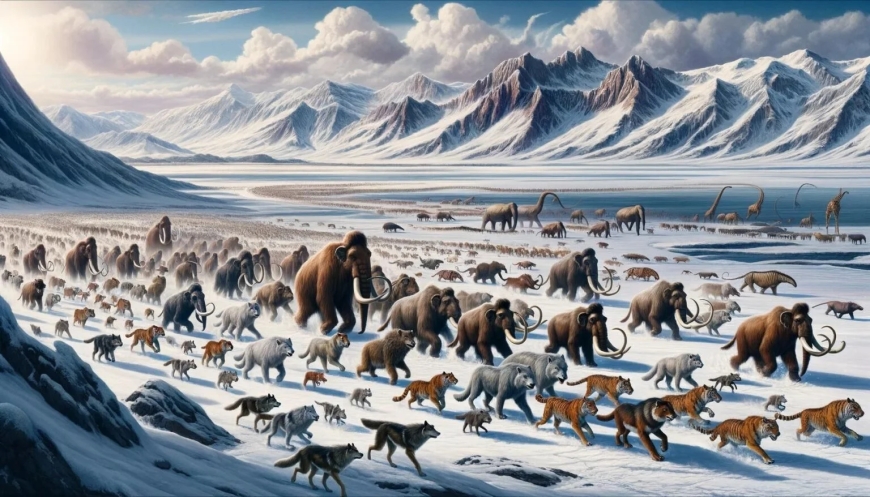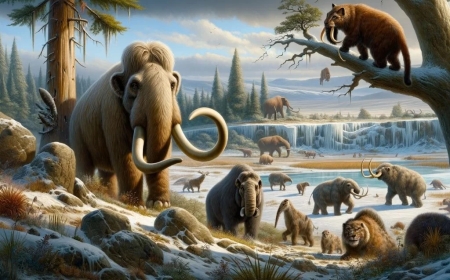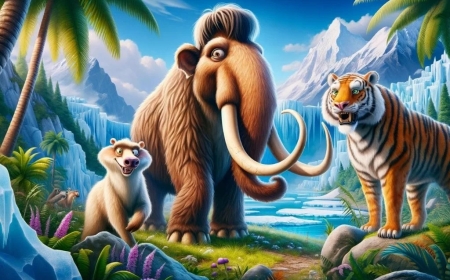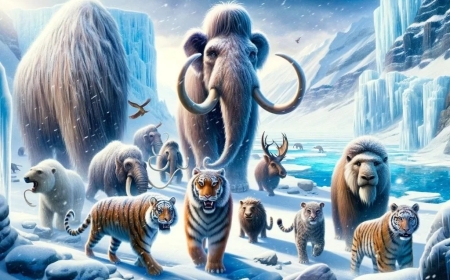What Were the Main Causes of Ice Age Animal Migration?

During the Ice Age, large animals roamed freely across Earth – from crocodiles and snakes to Megalania the monitor lizard; this Ice Age world was full of giant creatures!
Climate change has altered animal migration patterns. Some species are leaving their winter homes earlier and changing their summering spots, altering animal migration paths accordingly.
Land Bridges
An ice age occurs when glaciers store water that would normally flow into ocean levels and ocean levels drop, creating exposed land that animals can walk across. One such land bridge was established during the last ice age between Alaska and Siberia allowing animals from Asia to move to North America or vice versa.
Retrenchment also led to new plants appearing, altering the ecosystem in unexpected ways and leading to animals that were unable to adapt, dying off.
A study published in Proceedings of the National Academy of Sciences has demonstrated how shrub tundra, or northern woodland vegetation, transformed northern ecosystems. Researchers employed fossils of Fragilariopsis kerguelensis diatom to measure nitrogen isotope levels in water; as shrub tundra expanded across land masses, its nitrogen concentration increased as greenhouse warming caused climate change rather than human hunting for their research; leading them to conclude that climate change rather than hunting were responsible for large mammals’ extinction at the end of the last ice age.
Climate Change
During the Ice Ages, Earth’s climate changed significantly. A thick sheet of ice covered Antarctica’s land and seas, making life extremely difficult for animals living there and decreasing water levels globally to expose land bridges.
Animals that were able to adapt successfully thrived and flourished; while those unable to do so eventually died out.
Scientists suspect these changes were brought on by a decrease in upwelling, which brings deep waters up from beneath to bring nutrients that animals needed for survival to the surface.
Hunting
Now we know that animals did migrate during the Ice Age, yet we still don’t understand the causes for their migration. A combination of factors may have played a part, including global climate change and mass extinction events like an Ice Age meteor impacting sea levels.
One theory suggests that Europe, Asia and Antarctica’s combined ice sheets prevented sunlight from reaching the ground – leading to colder climate zones in some areas and warmer ones in others, creating ideal habitats for different species.
As the ice sheets melted away, light began reaching more areas on Earth and created new vegetation zones as well as distinct summer and winter seasons that forced animals to adjust; those who couldn’t adapt died off.
Hunting was also known to disrupt migration and hibernation patterns, destroy close family units and put undue stress on hunted animals. Gunfire caused traumatising noise levels to disrupt animal’s normal routines preventing them from gathering enough fat reserves for winter survival and making them more vulnerable against natural predators; leading many Ice Age mammals into extinction.
Humans
Due to harsh climate conditions during the Ice Age, many animals were forced to migrate, including large mammals such as mammoths, hippopotamuses and rhinoceroses who moved towards warmer latitudes or lower latitudes.
Earth’s orbit and plate tectonics cause global temperatures to decrease during ice age periods of great cold, leading to oceans losing heat while continents become covered in ice sheets that ultimately result in falling sea levels and land bridge formation; such is currently seen with Asia connecting to North America via Bering Strait.
As these changes take place more quickly, food resources animals rely on dwindle and their populations become significantly reduced – leading some of the larger megaherbivores to go extinct by the end of the last ice age.
What's Your Reaction?






































